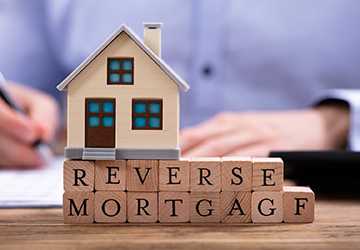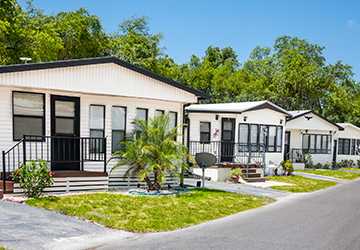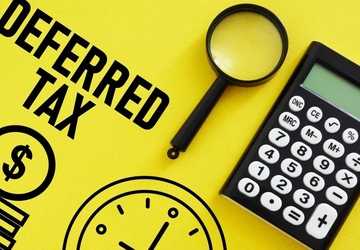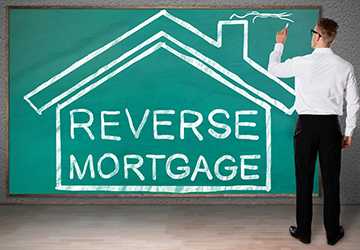Evaluating When a Reverse Mortgage Could Be Beneficial
Reverse mortgages are considered a valuable financial tool for seniors looking to tap into their home equity. Since traditional sources of income, such as pensions and savings, may not be enough to cover all expenses in retirement, a reverse mortgage can provide a much-needed financial cushion. This financial product allows homeowners to convert some of their home equity into cash while retaining ownership and occupancy.

Let's discuss the benefits of a reverse mortgage, outline the eligibility requirements, and help you determine if one suits your situation. Ultimately, it would help if you understood whether this financial tool is ideal for a more secure and comfortable retirement.
Benefits of a Reverse Mortgage
The main benefit of a reverse mortgage is the ability to convert your home equity into cash without selling your property; this can provide much-needed financial relief for retirees who rely on a fixed income. Instead of making monthly mortgage payments, you receive funds from a lender to help you pay for living expenses, medical expenses, or home improvements.
Another significant advantage of a reverse mortgage is that the funds received are generally tax-free; this can be advantageous compared to other taxable income types. Additionally, funds from a reverse mortgage do not affect Social Security or Medicare benefits, making it a more attractive option for many seniors.
A reverse mortgage also provides flexibility in how you receive the funds. You can choose a flat rate, monthly payments, a line of credit, or a combination of these options. This flexibility allows you to tailor your mortgage to fit your financial needs and goals.
In addition, reverse mortgages come with a non-recourse clause. When you repay the loan, you or your heirs will never owe more than the home's value. This advantage of a reverse mortgage ensures that your other assets are protected.
Qualification Requirements for Reverse Mortgages
Before considering a reverse mortgage, it is essential to understand the qualification requirements. The most critical requirement is age. You must be 62 years of age or older to qualify. This age requirement ensures that reverse mortgages are only for people approaching retirement or who are already retired.
Another essential requirement for reverse mortgage qualification is owning a home. You must own the house outright or have significant equity in it. If you still have a mortgage, it needs to be paid off; this ensures that the lender has a secure claim on the property.
The home itself must also meet specific requirements for reverse mortgage qualification. It must be your primary residence, H, and you must live there most of the year. Qualifying property types typically include single-family homes, two—to four-unit properties where the borrower occupies one of the units and some manufactured homes that meet Federal Housing Administration (FHA) standards.

A financial evaluation is an essential requirement for reverse mortgage qualification. Lenders evaluate your income, assets, and expenses to determine if you can afford ongoing property costs, such as taxes, insurance, and maintenance. This rating is designed to protect both the borrower and the lender.
Finally, it is mandatory to attend a HUD-approved counselling session. This reverse mortgage qualification requirement ensures that you fully understand a reverse mortgage's terms, costs, and implications. The purpose of the counselling session is to provide you with unbiased information and help you make an informed decision.
Is a Reverse Mortgage Right for You?
You must evaluate your financial situation, goals, and alternatives to determine if a reverse mortgage is right. Understanding the benefits of a reverse mortgage and meeting the qualification requirements is only part of the equation.
First, consider your financial needs. Do you need help paying your living expenses? Paying for medical bills or home maintenance? If so, a reverse mortgage can provide the financial relief you need. The ability to receive tax-free payments and protect your other assets can make a reverse mortgage an attractive option.
Next, think about your long-term plans. Do you plan to stay in your home for the foreseeable future? If you plan to downsize or move, there may be better options than a reverse mortgage. The loan matures when you sell your home, move out, or die. Therefore, it is essential to consider your future living conditions.
The costs associated with a reverse mortgage also need to be weighed. While the benefits of reverse mortgages are significant, they do require fees and interest. Origination fees, closing costs, and mortgage insurance premiums can add up. Over time, these costs can reduce the remaining equity in your home.
Also, consider your heirs. A reverse mortgage can affect the estate you leave behind. The loan must be repaid after death, usually by selling your home. If leaving your home to your heirs is necessary, discuss it with them and explore other financial options.
In addition, consider alternative solutions. Downsizing, applying for a home equity loan, or refinancing your mortgage may be viable options.
Finally, you should seek professional advice to understand your options thoroughly. They can help you understand the benefits of a reverse mortgage and the eligibility requirements and determine if this financial tool fits your goals.
Conclusion
Deciding when to consider a reverse mortgage is an important financial decision. The benefits of a reverse mortgage can provide significant financial relief, especially for those struggling to cover their living expenses in retirement. However, it is equally important to understand the eligibility requirements of a reverse mortgage and evaluate whether a reverse mortgage is right for your situation.
By carefully weighing the pros and cons, considering your long-term plans, and seeking professional advice, you can decide if a reverse mortgage is right for you. A reverse mortgage can increase your financial stability and peace of mind in retirement with the right approach.





